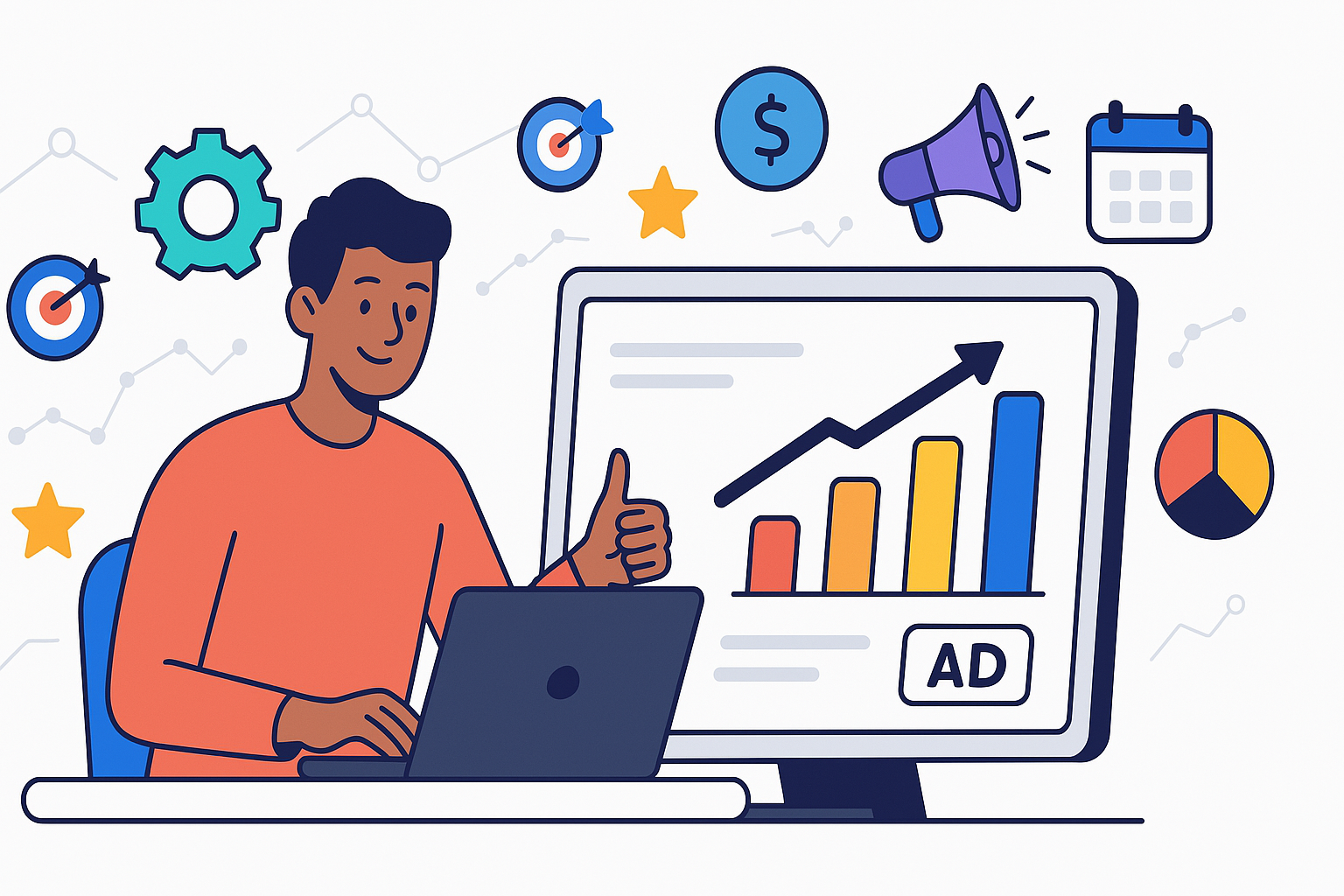Understanding SEO Cost: A Clear Guide to Smart Investment
by Francisco Kraefft on 23 Dec, 2024
You know Search Engine Optimization (SEO) is crucial for visibility and growth. But when you start exploring options, the question of "SEO cost" quickly surfaces, often revealing a confusing landscape of wildly different quotes. Why isn't there a simple price tag? Because effective SEO isn't a product you buy off the shelf; it's a strategic investment tailored specifically to your business goals, competitive environment, and starting point. Understanding the variables that influence this investment is the first step toward making a smart decision. This guide will demystify SEO pricing, showing you what factors truly matter, what different models mean, and how to evaluate potential partners not just on cost, but on the potential for real, measurable results. Let's explore how to invest wisely in your digital future.
Beyond the Price Tag: Why Custom SEO Strategy Matters
It's tempting to look for a simple, fixed price for SEO services. However, if you encounter agencies offering rigid, low-cost packages promising the world, proceed with caution. True SEO success stems from a customized strategy, meticulously crafted around your unique business context. Think of it like building a house: you wouldn't expect a sprawling mansion to cost the same as a cozy bungalow. The materials, blueprints, labor, and timeline all differ based on the desired outcome. Similarly, effective SEO requires a bespoke approach.
Why a Standardized Price Often Falls Short:
- Ignoring Your Specific Needs: A generic package can't account for your industry's competitiveness, your target audience's search behavior, your website's current technical health, or your specific growth objectives (e.g., local dominance vs. national expansion).
- Surface-Level Tactics: Low-cost options often rely on superficial tactics that might offer fleeting bumps but lack the depth for sustainable, long-term growth. They might check boxes but fail to move the needle on key business metrics.
- Risk of Harmful Practices: Some cheap providers resort to outdated or "black-hat" techniques that can actually harm your rankings and reputation, leading to Google penalties that are difficult and costly to reverse.
The Power of a Tailored Investment: The fact that SEO cost varies is actually beneficial. It means you're investing in a service designed to address your specific challenges and capitalize on your unique opportunities. A tailored approach allows for:
- Focused Resource Allocation: Your budget is directed towards the activities that will yield the highest return for you, whether it's technical optimization, high-quality content creation, or strategic link building.
- Alignment with Business Goals: A custom strategy directly connects SEO efforts to your overarching objectives, like increasing qualified leads, driving e-commerce sales, or building brand authority.
- Adaptability: The digital landscape constantly evolves. A tailored strategy, managed by a proactive partner, can adapt to algorithm updates, market shifts, and emerging opportunities, ensuring continued momentum.
Ultimately, viewing SEO cost as a flexible investment rather than a fixed expense shifts the focus from "How much does it cost?" to "What results can I achieve?". It's about allocating resources intelligently to build a powerful, sustainable engine for growth. This requires a partnership built on understanding your business, not just selling a package.
Decoding SEO Cost: The 7 Key Factors You Need to Know
So, if SEO isn't a fixed price, what does determine the cost? Several critical factors come into play when defining the scope and, consequently, the investment required for an effective SEO campaign. Understanding these elements will empower you to have more informed conversations with potential agencies and evaluate proposals effectively.
Here are the primary drivers of SEO cost:
- Your Business Goals & Objectives: What do you want SEO to achieve?
- Example: Are you aiming for local visibility in one city, national reach, or global expansion? Do you need to drive e-commerce sales, generate B2B leads, or increase brand awareness? More ambitious goals typically require a more significant investment.
- Scope of Work & Services: What specific activities are needed?
- Includes: Comprehensive keyword research, technical site audits, on-page optimization across many pages, consistent high-quality content creation (blogs, landing pages), strategic link building and outreach, local SEO management (Google Business Profile), e-commerce specific optimizations, detailed reporting, etc. A broader scope means higher costs.
- Industry Competitiveness: How crowded is your digital space?
- Consider: Ranking for highly competitive keywords in saturated markets (like finance or law) demands significantly more effort, resources, and sophistication than targeting niche, low-competition terms. We analyze your competitors' strategies to determine the level of effort needed to surpass them.
- Current Website Status & History: What's your starting point?
- Factors: Is your website brand new or established? Does it have existing technical issues (slow speed, poor mobile experience, crawl errors)? Has it been penalized by Google in the past? Addressing foundational problems or recovering from penalties requires initial intensive work that impacts cost.
- Target Audience & Geography: Who are you trying to reach, and where?
- Specificity: Targeting multiple audience segments or geographic locations requires more tailored content, keyword strategies, and potentially multilingual SEO, increasing complexity and cost.
- Agency Expertise & Resources: What level of experience are you paying for?
- Value: Highly experienced agencies with proven track records, specialized tools, and dedicated teams (strategists, content writers, technical experts, outreach specialists) command higher fees than freelancers or less established agencies. This often translates to more sophisticated strategies and better results. Remember, you're investing in expertise and outcomes.
- Desired Speed of Results: How quickly do you need to see progress?
- Patience vs. Aggression: While SEO is a long-term strategy, a more aggressive approach (more content, faster link building, quicker implementation of technical fixes) can accelerate results but requires a larger upfront or ongoing investment.
By considering these factors, you can better understand why quotes vary and what level of investment aligns with your specific situation and ambitions.
SEO Pricing Models Unpacked: Retainers, Projects, and Hourly Rates
Agencies structure their SEO pricing in several common ways. Understanding these models helps you compare proposals and choose the structure that best fits your budget, needs, and relationship preferences.
1. Monthly Retainer:
- What it is: A fixed fee paid each month for ongoing SEO services. This is the most common model for comprehensive, long-term SEO strategies.
- Pros: Predictable budgeting, fosters a continuous partnership, allows for ongoing optimization and adaptation, covers a wide range of activities (technical, content, links, reporting). Ideal for sustained growth.
- Cons: Requires a longer commitment, results build over time (not instant).
- Typical Investment Ranges (Illustrative):
- Basic/Local: $500 - $2,000/month (Often focuses on local SEO, basic on-page, limited content/links)
- Standard/Regional: $2,000 - $5,000/month (More comprehensive strategy, consistent content, moderate link building, deeper technical SEO)
- Competitive/National: $5,000 - $10,000+/month (Aggressive content & link building, advanced technical SEO, highly competitive markets, larger sites)
- Note: These are general estimates; actual costs depend heavily on the factors discussed in the previous section.
2. Project-Based Pricing:
- What it is: A fixed price for a specific, defined project with clear deliverables and a set timeline.
- Examples: Technical SEO audit and implementation, website migration SEO support, initial keyword research and on-page optimization plan, specific content marketing campaign.
- Pros: Clear scope and cost upfront, good for addressing specific needs or one-off tasks.
- Cons: Doesn't cover ongoing optimization or adaptation, may not be suitable for the continuous nature of comprehensive SEO. Can sometimes feel transactional.
3. Hourly Consulting:
- What it is: Paying for SEO expertise on an hourly basis. Rates can vary significantly based on the consultant's or agency's experience ($100 - $300+/hour is common).
- Pros: Flexibility, pay only for time used, good for specific questions, training, or strategic guidance.
- Cons: Can be difficult to budget for larger needs, may lack the holistic approach of a retainer, costs can escalate quickly without careful management. Less common for full-service SEO execution.
Choosing the Right Model: For businesses serious about long-term organic growth, the monthly retainer model usually offers the best value and facilitates the strategic partnership needed for sustained results. Project-based work is excellent for targeted needs, while hourly consulting suits specific advisory roles. When evaluating proposals, ensure the scope of work clearly justifies the cost within the chosen model.
What's Included in SEO Cost? A Look at Core Services
When you invest in SEO, what specific actions are being taken to improve your online visibility and drive results? Understanding the core activities involved helps you appreciate the value behind the cost and ensures your chosen partner is focusing on the right areas. While the exact mix depends on your custom strategy, comprehensive SEO typically involves these key pillars:
- Strategic Keyword Research & Analysis:
- What it is: Identifying the terms and phrases your target audience uses to search for your products, services, or information. This goes beyond obvious terms to uncover high-intent, long-tail keywords and understand searcher intent.
- Why it matters: Forms the foundation of your entire SEO strategy, guiding content creation and optimization efforts.
- Technical SEO Audit & Optimization:
- What it is: Ensuring search engines can easily crawl, index, and understand your website. This includes optimizing site speed, mobile-friendliness, site architecture, URL structure, implementing schema markup, managing crawl errors, and ensuring site security (HTTPS).
- Why it matters: A technically sound website is crucial for ranking well. Ignoring technical SEO can undermine all other efforts.
- On-Page & Content Optimization:
- What it is: Optimizing individual page elements (title tags, meta descriptions, headers, image alt text) and the actual content to align with target keywords and searcher intent. This involves creating new, high-quality, engaging content (blog posts, articles, guides, landing pages) designed to attract and satisfy users.
- Why it matters: Tells search engines what your pages are about and provides value to visitors, improving rankings and engagement.
- Content Creation & Marketing:
- What it is: Developing and promoting valuable, relevant content to attract and retain a clearly defined audience – and, ultimately, to drive profitable customer action. This content serves both users and search engines.
- Why it matters: High-quality content creation is essential for attracting organic traffic, earning backlinks naturally, and establishing authority.
- Off-Page SEO & Link Building:
- What it is: Building your website's authority and trustworthiness through high-quality backlinks from reputable websites. This involves strategic outreach, relationship building, and promoting content – not buying low-quality links. Local SEO citations (NAP consistency) also fall under this.
- Why it matters: Link building, specifically high-quality backlinks, are a major ranking factor, signaling to search engines that others trust your content.
- Analytics & Performance Reporting:
- What it is: Continuously monitoring key SEO metrics (rankings, organic traffic, conversions, bounce rate, etc.) using tools like Google Analytics and Google Search Console. Providing regular, transparent reports that explain progress, insights, and next steps.
- Why it matters: Measures the effectiveness of the strategy, identifies areas for improvement, and demonstrates ROI. At iVirtual, data drives every decision we make.
A comprehensive SEO investment covers the expertise, time, and tools required to execute these interconnected activities effectively and consistently. These core pillars form the foundation of the comprehensive SEO services offered by experienced agencies.
Smart SEO Investment: Choosing a Partner Focused on Results
Selecting an SEO agency is a significant decision. While cost is undoubtedly a factor, it shouldn't be the only one. The cheapest option rarely delivers the best long-term value, and the most expensive isn't automatically superior. Your goal is to find a partner who understands your business, aligns with your goals, and possesses the expertise to deliver measurable results.
Here’s what to look for when evaluating potential SEO partners:
- Transparency and Communication: Do they clearly explain their strategy, tactics, and reporting? Are they open about what activities your investment covers? Regular, clear communication is vital for a successful partnership. Avoid agencies that are vague or use confusing jargon.
- Proven Track Record & Case Studies: Can they demonstrate past success with businesses similar to yours (in size, industry, or goals)? Ask for case studies, testimonials, or references. Look for evidence of achieving tangible results, like increased organic traffic, lead generation, or sales.
- Data-Driven Approach: Do they emphasize analytics and measurement? A results-focused agency, like iVirtual, bases strategies on data, continuously monitors performance, and uses insights to refine tactics. Ask how they measure success and what KPIs they track.
- Customized Strategies: Do they offer a tailored plan based on your specific needs, goals, and market, or push a generic package? As we've discussed, a one-size-fits-all approach rarely works for sustainable SEO growth.
- Understanding Your Business: Do they take the time to learn about your products/services, target audience, competitive landscape, and overall business objectives? Effective SEO must integrate with your broader marketing and business strategy.
- Ethical Practices (White-Hat SEO): Do they adhere to Google's webmaster guidelines? Be wary of guarantees for #1 rankings (no one can guarantee this ethically) or promises of extremely fast results, which often involve risky "black-hat" tactics that can lead to penalties.
Red Flags to Watch Out For:
- Guaranteed top rankings.
- Emphasis on quantity over quality (e.g., promising thousands of low-quality links).
- Lack of transparency in methods or reporting.
- Unrealistically low prices (often indicating cut corners or ineffective tactics).
- High-pressure sales tactics.
Choosing an SEO partner is about investing in expertise, strategy, and ultimately, growth. Focus on finding an agency that demonstrates a clear path to achieving your business objectives through a data-backed, transparent, and customized approach.
Conclusion
Navigating the world of SEO cost doesn't have to be confusing. Remember, SEO is not a commodity with a fixed price, but a strategic investment in your business's future growth. The cost is shaped by your unique goals, industry landscape, and the specific scope of work required. Focus on understanding the value delivered – the expertise, the tailored strategy, the core activities performed, and most importantly, the potential for measurable results. By prioritizing transparency, a data-driven approach, and a partner genuinely invested in your success, you can confidently allocate your budget towards achieving sustainable online visibility and real business impact.
Ready to invest smartly in your SEO? Let's discuss a tailored strategy focused on delivering measurable results for your business. Contact us today for a personalized consultation.


